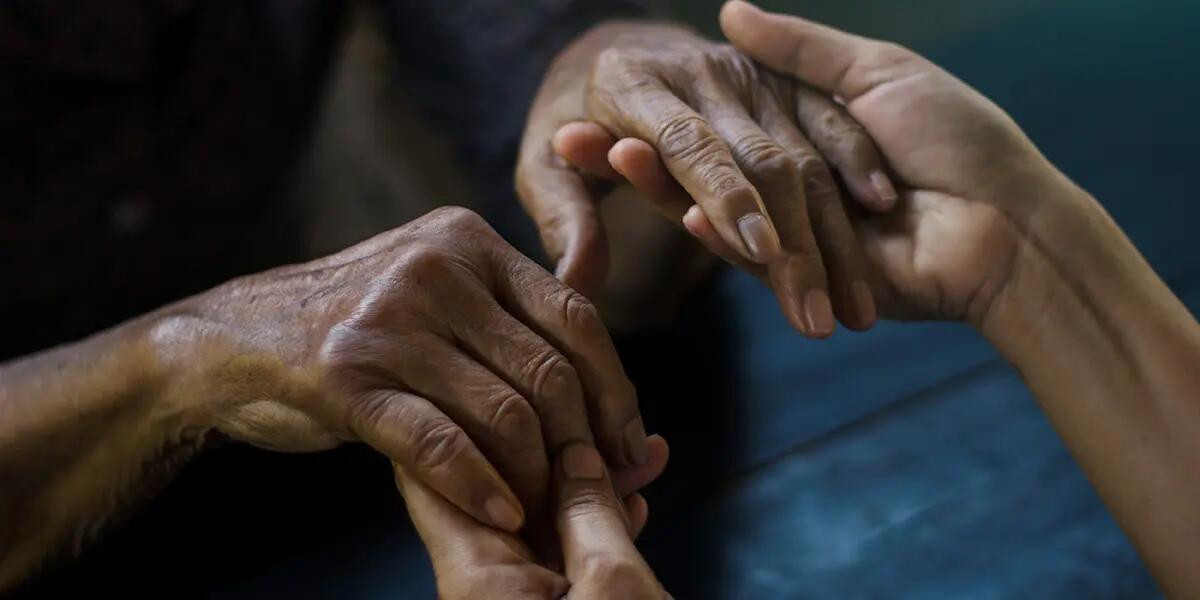Behavioral Training for Dementia Care Staff

Providing behavioral health services in nursing homes is challenging, according to research reported in the Journal of the American Geriatrics Society. The researchers say, “Behavioral health disorders affect 65% to 90% of nursing home residents.” Staff training can empower facilities to rise to the need of their patients, especially those with Alzheimer’s and other forms of dementia.
Difficulty finding quality behavioral health services
In a survey of nursing homes across the nation, the researchers found that up to 40% of facilities rated providing behavioral health services as difficult or very difficult. Furthermore, almost half of survey respondents cited a lack of behavioral health training as a key reason. “Inadequate behavioral health education and psychiatric training among nursing home staff were associated with subpar provision of behavioral health services in this care setting,” said the authors.
Nursing home violence
One aspect of behavior that is particularly troubling is the level of violence initiated by residents in nursing homes. “Nursing assistants working in long-term care facilities have the highest incidence of workplace violence of any American worker, with 27% of all workplace violence occurring in the nursing home,” according to Hall et al. They also note that nursing home staff are assaulted at least once per month.
The vast majority of assaults (90%) come from patients with Alzheimer’s disease. In addition to resident-to-staff aggression, resident-to-resident behaviors also threaten quality of life in nursing homes. Some of the most often reported forms of aggression among patients with dementia are grabbing or pinching, hair-pulling, scratching, biting, hitting, punching, pushing, kicking, spitting, verbal assaults, and sexual advances.
In-service Training for CNAs
Hall and colleagues bring out crucial perspectives about direct care staff. About three-quarters of assaults against nursing home staff occur during close contact and daily care, which puts CNAs, professionals with less career training, at the highest risk of injury. Assaults often happen while staff are transferring or turning a resident or assisting with ADLs.
While all nursing home staff benefit from training, it’s especially important to consider the direct care needs of CNAs, because 70-90% of all day-to-day resident interactions are with CNAs. CNAs endure assaults as often as nine times per month. What’s more, training has proven to have positive outcomes; training CNAs in behavioral management techniques has been shown to reduce assaults by 46%.
Behavioral training topics
GuideStar recommends that CNA training can focus on:
- Orienting to dementia and neuropsychiatric conditions
- Defining violence and assaults
- Understanding the reasons for violent behavior
- Enhancing communication techniques
- Learning de-escalation skills and methods.
Through training, staff can build skills that allow them to improve communication, use appropriate eye contact, provide positive statements, use simple commands, allow residents an appropriate level of independence based on the situation, and defuse behavioral problems.
CMS guidance
In its State Operations Manual, CMS provides extensive guidance about staff training, saying “A facility must develop, implement, and maintain an effective training program for all new and existing staff; individuals providing services under a contractual arrangement; and volunteers, consistent with their expected roles.” They also say, “The facility must identify the skills and competencies needed by staff to work effectively with residents (both with and without mental disorders and psychosocial disorders).” Training is addressed specifically in reference to F-tag 940 (general training), as well as F-941 (communications training) and F949 (behavioral health training). Meeting the behavioral health needs of residents requires an organized approach with a focus on building competencies.
Behavioral health training available
All staff can benefit from customized training, which can lead to lower rates of staff turnover and the highest levels of care for their residents. The GuideStar team offers in-service education programs to long-term care facilities to help staff maintain best practices and build behavioral health skills. Based on a nursing home’s own data, training sessions are customized to the needs of each nursing home and the role of each staff group in patient care.
Behavioral training is delivered by experienced GuideStar Eldercare psychologists who work with residents and staff in a wide variety of long-term care facilities. In addition, specialized Nurse Practitioners often provide training that focuses on pharmacologic management, reducing polypharmacy, and medical record documentation issues in nursing homes.
Topics that are most often requested include:
- Understanding dementias and their clinical presentations
- Understanding psychiatric illnesses and their clinical presentations
- How to respond to specific behaviors
- Non-pharmacological interventions and redirections
- Dealing with aggressive behaviors, e.g., resident-to-resident or resident-to-staff aggression
As difficult as resident behavioral issues may be, it is surprising to discover that many can be managed with focused behavioral techniques. Specialized training for dementia care always builds on an understanding of the patient’s illness and what they’re experiencing. Many aggressive behaviors can be defused. Knowledge is power—the power to advance person-centered care in a safe environment.
What resident behavioral challenges do you find most difficult? We’re ready to listen, and we’re here to help. Feel free to reach out to our clinical specialists.
